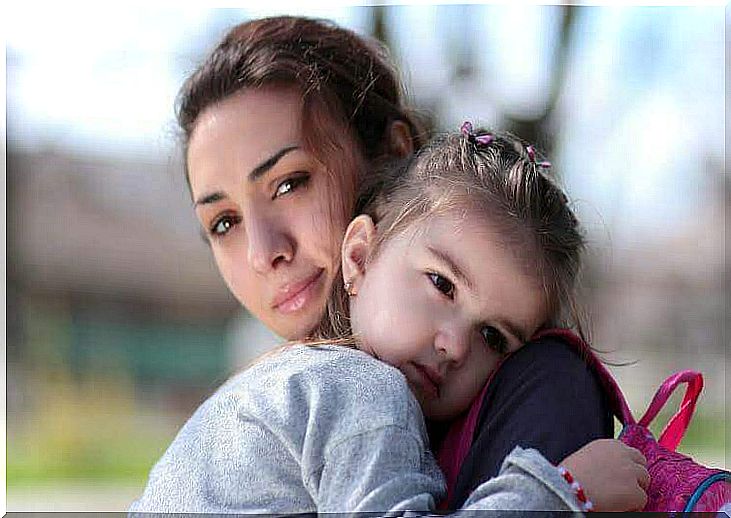Absence Of The Father: How Do I Help My Child?

For many, the ideal family picture is still father, mother and children. But what if the family is not complete? How can the absence of the father affect the development of the children? How can you help your offspring deal with this situation?
Today we invite you to reflect with us on this topic.
Myths about the ideal family
The ideal family image is still deeply anchored in society. Even today, many still believe that a family is incomplete without a father and that children in this situation therefore suffer from emotional problems in their development. But this is far from the reality.
The absence of the father does not mean that the family is less happy or that the children have behavioral disorders. Children especially suffer from these antiquated social attitudes: they feel different, alone and judged by others.
However, you can help your child better cope with the sadness and pain caused by their father’s absence. This should be a priority for you.
There are various reasons for the father’s absence, which also affect the child differently. A friendly separation is of course easier to cope with than the tragic death of the father.
The child should always know the truth, because only in this way can he learn to do without the father.
Absence of the father for various reasons

Explain to your child in age-appropriate words that their father will no longer be able to pick them up from school, that they will not be there today or tomorrow to play with them. This can be very difficult, especially if the relationship with the father was very close.
You also suffer doubly from this situation yourself, because your child’s sadness gives you additional worries.
When the father dies, the child’s feelings can be very confused. They can feel anger, frustration and sadness and need help to cope with this situation.
After a separation or divorce, the father is usually not completely absent, but this situation is still confusing for a child.
Of course, there are also families in which the father is absent from the start. Even a father who does not exercise his responsibility can leave deep marks if the child does not learn to deal with it properly.
In particular, honest and open conversations can help the child to understand the situation better.
That is not easy. And at a certain age your child will ask an incredible number of questions, which are often difficult or uncomfortable, but still need an answer.
Over time, your child will understand their situation, even if they find it unfair and find it difficult to accept the father’s absence.
How can a child overcome their father’s absence?

- Your child needs help and support in this difficult situation. A person of trust with whom he can speak is essential! Take time for your offspring and listen to them.
- Don’t let your child feel ashamed or complex because their father is not around. It must therefore feel no different from others.
- Explain to him that what happened is not to blame . In most divorce cases, children feel responsible. You must therefore know that the differences between the parents led to a separation for other reasons.
- Anger and wrongdoing can be the response to the father’s absence if the child does not understand how it came about. You need to explain to him that despite sadness and frustration, there is no need to be stubborn.
- Help your child let go and get rid of their pain and negative thoughts. If necessary, an experienced therapist can help you with this.
- Forgiveness is the magic word when your child doesn’t even know their father. Show your child to look ahead and be resilient.
Forgiving will help your child heal their wounds
Tell your child how much you love them and that you will always care for them without expecting anything. It has to know that as a mother you are proud of it!
Of course, the fatherly figure is important, but if it is not there it does not mean that the child is developing negatively. If you stand by and help your son or daughter, this situation will not be decisive for the rest of your life.
Your child probably also has a grandfather, an uncle or your new life partner who can serve as role models. Most important, however, are the values and teachings that you give him to shape his character.









